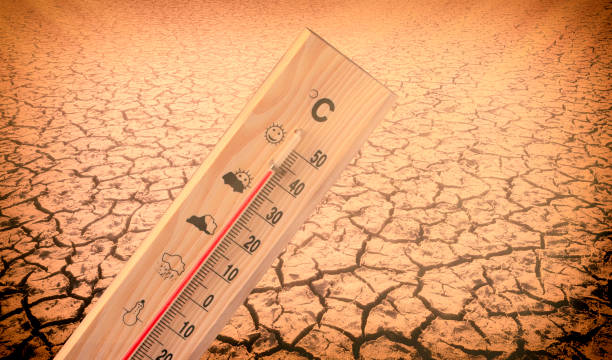On Thursday, two major aid organizations, the International Federation of Red Cross and Red Crescent Societies (IFRC) and the U.S. Agency for International Development (USAID), will host their first global summit on extreme heat. This conference aims to address the increasing risk of heat-related disasters as climate change escalates.
The event will spotlight innovative solutions such as tree-planting initiatives and reflective roof coatings designed to lower indoor temperatures.
With 3.8 billion people experiencing extreme heat last year, the summit hopes to push governments to take the heat threat more seriously, contrasting with the attention given to hurricanes and earthquakes.
The virtual summit will call on governments, humanitarian groups, and businesses to develop heat action plans and propose the idea of naming heatwaves to raise their profile.

Jagan Chapagain, IFRC’s Secretary General, likened the situation to a scene from Kim Stanley Robinson’s novel *Ministry for the Future*, where a catastrophic heatwave kills millions. He warned that while such extreme scenarios are not yet a reality, the growing frequency of severe heatwaves is a grave concern, often overshadowed by more dramatic disasters.
Heat-related deaths are already significant, particularly in the U.S., where heat is a leading cause of climate-related fatalities.
The IFRC’s Disaster Response Emergency Fund has seen a dramatic increase in heatwave appeals over the years. Projections suggest heat-related deaths could increase fourfold by mid-century if temperatures rise by 2°C, with significant impacts in countries like China.
One goal of the summit is to enhance data collection on heat impacts, which is currently inconsistent. For example, France reported 5,000 heat-related deaths last year, while much less populous countries like India reported far fewer deaths despite higher temperatures.
The summit will also highlight local efforts like those in Freetown, Sierra Leone, where measures include heat mapping and creating cool corridors. The initiative aims to draw attention to heat’s impact on vulnerable populations and improve disaster response.
Plans include developing standardized heatwave response kits and strategies, with the summit marking the start of a global awareness campaign and an online heat action center for sharing best practices.

